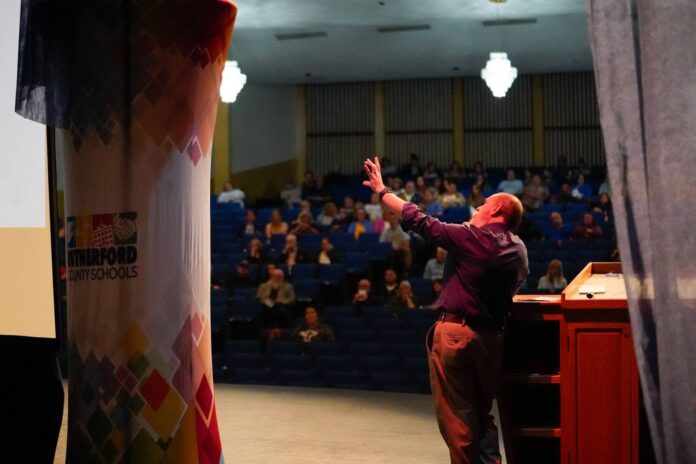In a rural corner of western North Carolina, one school system is doing something rare: confronting funding shortfalls not with quiet compliance, but with bold transparency, public storytelling, and unapologetic advocacy.
Rutherford County Schools (RCS), which serves more than 7,000 students, has launched the “RCS Education Matters” campaign — a strategic communications initiative designed to both promote the value of its schools and advocate for the resources they need.
Superintendent Dr. David Sutton, who has led the district through pandemic recovery and persistent budget cuts, puts it plainly: “We are not advocating for the best. We are advocating for survival.”
This year, RCS is requesting $5.4 million in additional local funding from the Rutherford County Board of Commissioners. That’s not an ask for enhancements or innovation; it’s an ask to keep the status quo. Athletics, local teacher salary supplements, school resource officers, and even classroom supplies are all at risk if funding is denied.
And that’s exactly what the “RCS Education Matters” campaign is laying bare — not just in numbers, but in faces, facts, and futures.
Like many districts, RCS has had to navigate years of underfunding and inflationary costs. During the 2024-25 school year, the school district sold surplus properties to Rutherford County and the town of Rutherfordton, expended its remaining federal COVID-19 relief funds, and brought in residual revenue from the sale of computer devices in an effort to make ends meet. These were one-time, nonrecurring revenues.
In the 2025-26 school year, rising energy costs, increased insurance premiums and retirement rates, and inflation are expenses that school districts cannot control, but must account for financially to keep their schools open and operating. At RCS, the $5.4 million gap in funding is not something the school system can request from the state, Sutton said, nor can it easily be found in further cuts in personnel, programs, safety, or transportation, without negatively impacting learning.
That gap must be funded locally, he said, in order to meet the basic needs of the students.
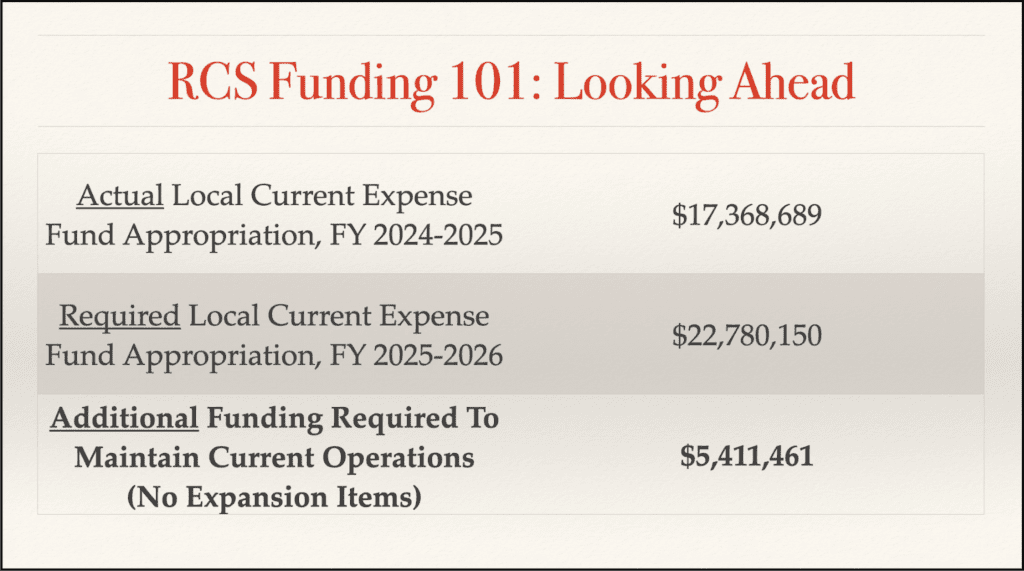
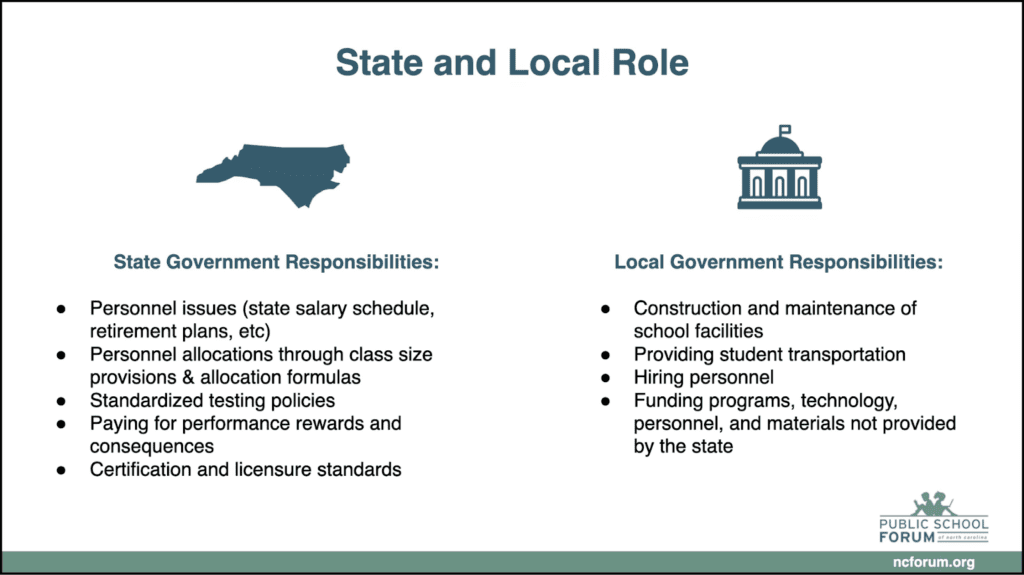
A campaign rooted in urgency and truth
The campaign began in earnest this spring, with a dual mission: first, to promote RCS as the best educational option for families in Rutherford County, and second, to equip community members with solid, factual information that can be used to advocate for its schools, including sufficient school funding.
Led by Ritchie Garland, director of marketing and community relations for RCS, daily content features like “Myth Busting Monday,” “Transparency Tuesday,” and “Why RCS? Wednesday” appear across RCS’s digital platforms, creating what Sutton calls a “rhythm of truth” in a media environment often flooded with misinformation.
The campaign also includes a series of in-person forums, meant to provide spaces for students, parents, educators, and community partners to share what schools mean to them and what’s at stake if funding does not come through.
“We’ve matured from newsletters into a multi-platform, strategic communications approach,” Sutton said. “We are not waiting for people to come get information — we are pushing it deeply and broadly into the community.”
Garland noted that RCS is not the only district facing funding challenges.
“There are school districts across the state and the nation who are trying to shore up the disappearance of ESSER funds, who are trying to scale down,” Garland said. “There is a huge need for people — not just here, but everywhere — to talk about the importance of public education, what it means for their communities, and what would happen if we did not have our schools.”

On April 22, RCS, in partnership with the Rutherford County Schools Educational Foundation and the Public School Forum of North Carolina, hosted a community-wide event to discuss funding issues and facts facing the school system.
Marisa Bryant, senior consultant for the Public School Forum, set the stage for the evening by guiding attendees through an overview of educational funding in North Carolina and where Rutherford County ranks in terms of local funding efforts across the state.
“We know many districts are facing tough conversations about budgets,” Bryant said. “The Public School Forum helps bring a statewide perspective and presents statewide trends so that everyone involved in the conversation can at least start on the same page with some common understanding about who should be funding and who should be making decisions about educational matters in an effort to make those conversations more productive.”
Here’s a look at highlights from the Public School Forum’s most recent study on local school funding, and where RCS ranks across the state.
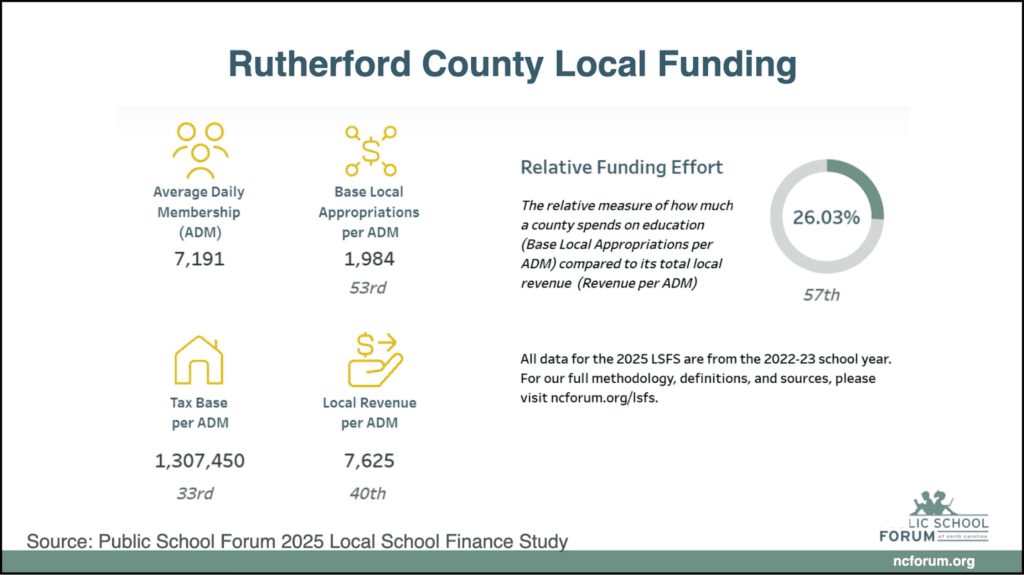
Sutton followed with a detailed presentation titled “Funding 101,” where he walked participants through RCS funding specifics, including where the money comes from, where the money goes, what has been cut, and what is needed to keep schools running.
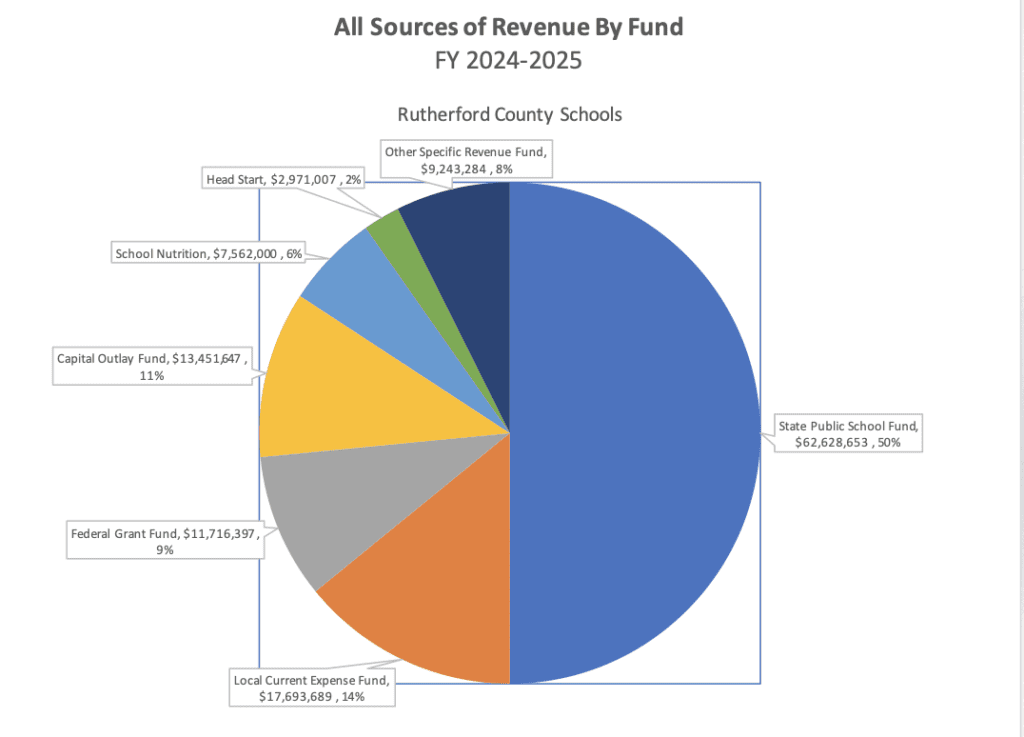
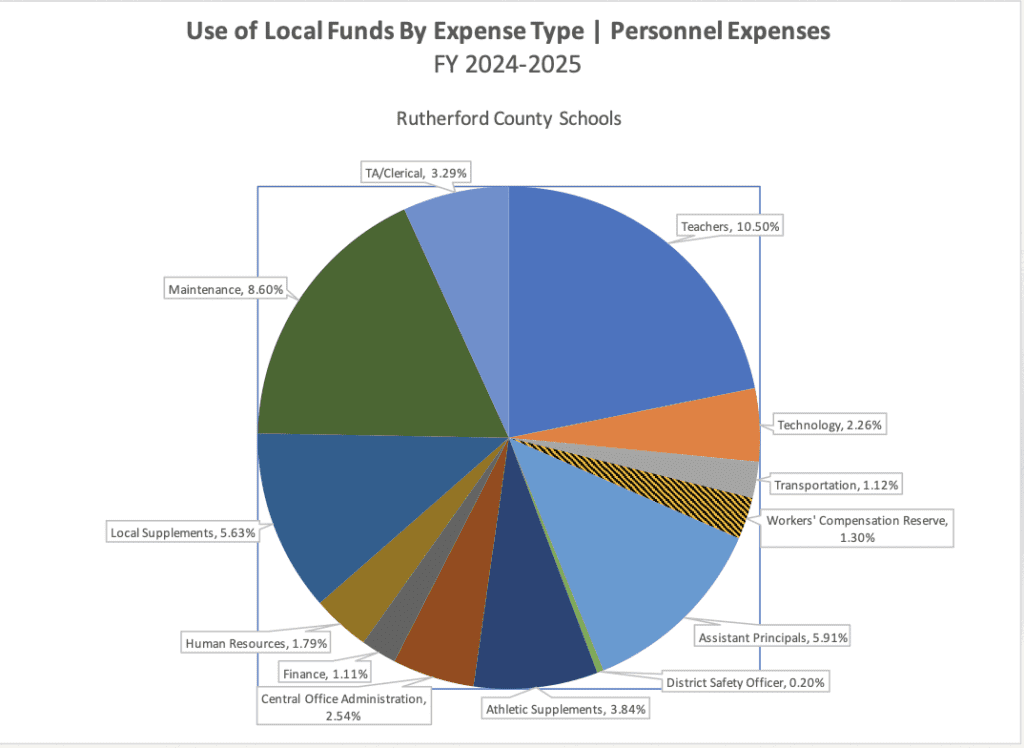
The RCS campaign is frank about the math. Since 2009, according to the campaign, RCS has cut:
- 514 full-time positions,
- 56 school buses,
- Utility consumption by 27%, and
- Nearly half of its school-level administrative support.
Sutton said there are no easy places left to trim.
“If we don’t get the funding, what should we cut? Teacher salary supplements? School resource officers? Arts programs? The choices are unfair, and unacceptable,” he said.
R-S Central High School Principal Phil Rogers, the 2024 NC Western Region Principal of the Year, agreed.
“During COVID, ESSER funding allowed us to hire the right people to meet the needs of our kids. We exceeded growth,” Rogers said. “When that funding went away, those people left, and our growth stalled. I didn’t forget how to lead and teachers didn’t forget how to teach — we just lost our capacity.”
But the campaign isn’t just about spreadsheets. It’s also about people.
Grant Bailey, a parent of a seventh and 10th grader, framed the issue clearly, saying: “We won’t get the people or the programs back that we lose. It won’t be a hedge that we trim, it will be an egg we will break.”
Freshman Bryson Thompson brought the crowd to its feet when he spoke at an April 7 commissioners’ meeting about the impact of schools and need for more funds.
“I’m building a house with my dad using skills I learned in carpentry. I’ve learned how to cook in my foods class. We’re helping kids with food insecurity from our classroom,” he said. “And our teachers are using their own money to make learning matter. It shouldn’t be that way.”
Thompson’s testimony made the stakes crystal clear.
“I don’t want my school to become a place where kids just sit at desks and ‘do work.’ That will happen if we don’t fund the things that make us future-ready,” he said.
In response to projected budget shortfalls, Sutton said the district has even discussed the idea of closing some of its schools — although he said doing so would only cover about one-third of what’s needed.
“And the trade-offs? Some elementary students would spend 3–4 hours per day on a bus,” he said. “That’s not sustainable, and it’s not something our community should accept.”
Ashley Twitty, principal of Pinnacle Elementary School, recently told EdNC that “Pinnacle is more than a school. We are the heart of our community.”
“After the hurricane, when people were without power, water, and basic necessities, they didn’t go to elected officials,” she said. “They came to us.”
Following Helene, Pinnacle quickly became an emergency hub. Staff distributed food and baby supplies from classrooms. High school students and volunteers organized donations. Teachers showed up even without phone or internet access at home. It was, as Twitty said, a school doing what schools do best — showing up.
Now, despite increasing enrollment and rising academic performance, Pinnacle is on a list of schools considered for closure.
Closing the school, Twitty said, would remove not just a learning space, but a lifeline.
“This $5.4 million ask is not about extravagance,” she said. “It’s about protecting the institutions that have always protected us.”
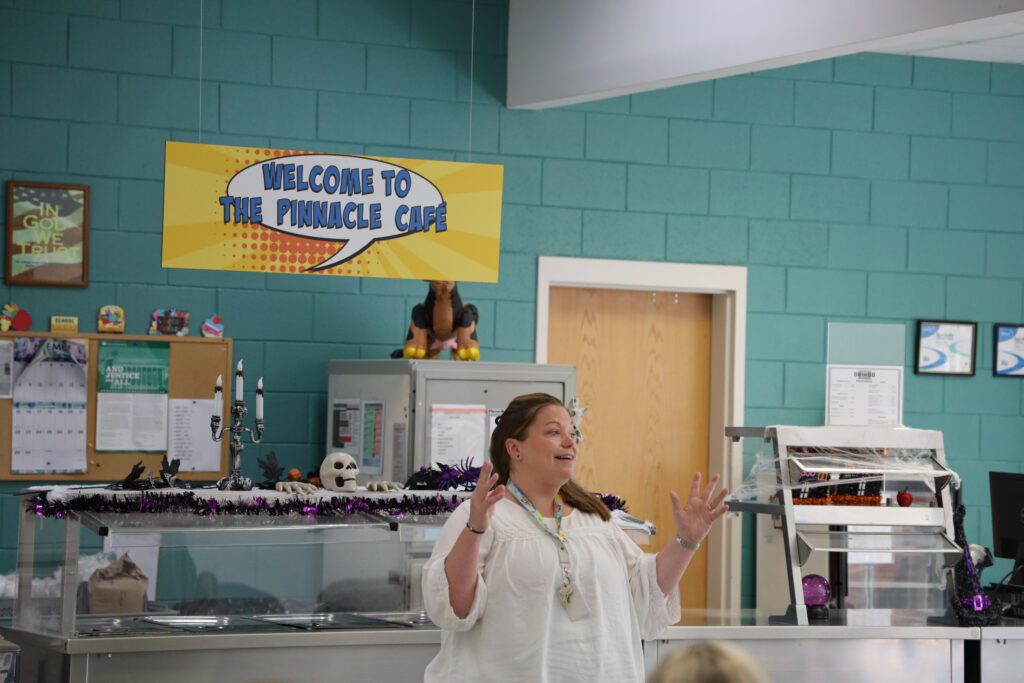
The cost of disinformation
History teacher Katie Yelton also emphasized the importance of fighting disinformation.
“There is a crisis in media literacy,” Yelton said. “There’s a struggle to recognize misinformation and disinformation — and that affects us most at the local level.”
To counter that, the RCS campaign’s “Myth Busting Mondays” have taken on everything from school funding myths to staffing misconceptions.
Some community members suggested eliminating technology to cut costs, for example. But the district said that move would cripple student readiness in an increasingly digital world.
Yelton offered a powerful analogy:
“If a national park closes, that’s unfortunate. If the local Purple Martin Greenway Trail system closes, that affects the many people here who use it weekly. The same is true with education. If the federal DOE (Department of Education) closes, it will affect us in many ways, but those are distant and not necessarily immediate. If RCS closes schools, that will change the lives of not only our students, but our whole community because it is a major local entity. People will lose jobs, and not just teachers. Students will lose their day-to-day functions. The community will lose its largest employer, and its largest employee training source. We would be devastated as an entire community.”
More on district finances
County Commissioner Donnie Haulk raised concerns about per-pupil spending in RCS compared to charter schools and neighboring counties. He acknowledged not fully understanding the cost differences, especially regarding special education services and transportation.
Rogers, the high school’s principal, said Exceptional Children (EC) make up about 20% of the student population, but the state currently has a 13% funding cap.
“That gap has to be made up locally,” Rogers said. “Our transportation costs are higher because we serve rural areas that require more extensive busing. These are our kids and we have to serve all of them.”
Haulk emphasized he is trying to learn more about public education and funding for schools.
“I’ve just found out that charter schools are also public schools. I’m not saying cut teachers — but I’m trying to understand the numbers,” he said.
Commissioner Hunter Haynes, also a parent of RCS students, said his perspective shifted as he learned more.
“I ran on school safety. But once I understood what was happening in our schools, I knew the lack of school funding was the bigger issue,” he said. “Our school system has already cut everything they can cut to just maintain the bare minimum. RCS is the largest employer in our county. This issue is about our kids. Our teachers provide an education for our children who will one day be in positions of influence. We have to support them now.”
So what happens next?
Sutton didn’t mince words.
“Without this funding, experiences and resources that are indispensable will disappear: athletics, arts, career and technical education, school safety,” he said. “We will lose the very things that keep students engaged and prepared for life.”
Career and Technical Education (CTE) pathways like carpentry, culinary arts, public safety, and teacher cadet are already a major part of the workforce pipeline in Rutherford County.
Cutting them would, as one forum attendee said, “break us.”
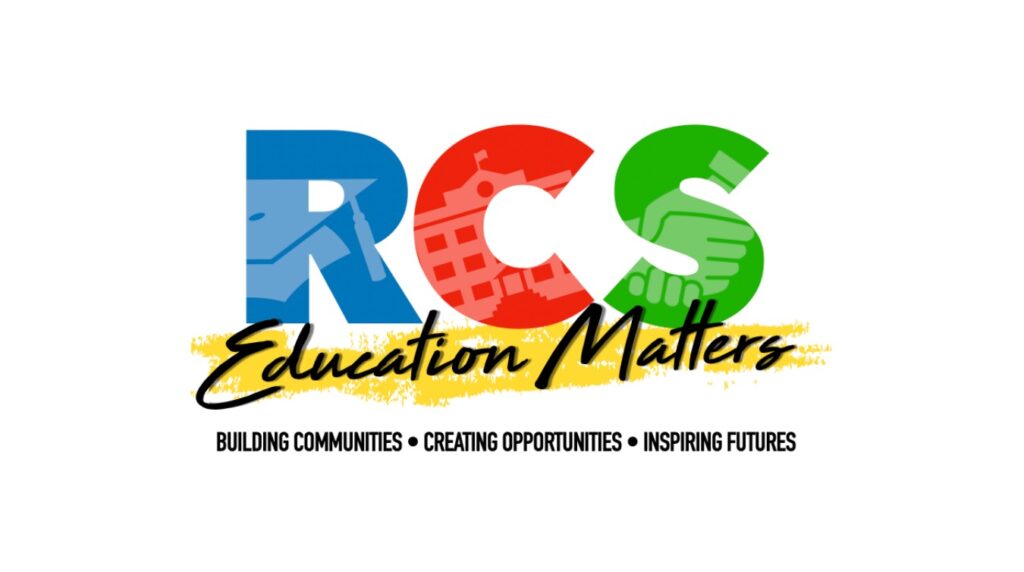
A playbook for other districts
The Public School Forum’s Bryant said that RCS’s campaign is unique in its clarity and scope.
“I haven’t really seen anything like this in another district,” she said. “This could be a model for others across the state.”
Sutton emphasized the district’s commitment to stretching every dollar, noting that RCS ranks in the bottom quarter of NC districts in local per-pupil spending — yet continues to outperform in growth metrics.
“We are not inefficient,” he said. “We are underfunded.”
Board of Education Chair Phillip Morrow said he’s heard a shift in community conversations.
“People say, ‘We didn’t know.’ This campaign is changing that,” Morrow said. “I believe it will have lasting impact.”
RCS continues to engage with civic groups, religious organizations, and governing bodies. Their message is consistent: this isn’t just about funding schools, it’s also about investing in the future of Rutherford County.
For other school districts across North Carolina and beyond, this campaign offers more than hope. It also offers a playbook.
- Tell your story before someone else tells it for you.
- Speak plainly, push truth daily, and center students in every message.
- From daily myth-busting and community forums, to classroom stories and candid budget realities, “RCS Education Matters” is a model of how to cut through noise and build trust.
It’s not perfect, but it’s public, and that’s the point. The courage it takes to put the facts out there, to listen to stakeholders, and to tell the stories of our schools is the heartbeat of every public school entity in our state right now.
This isn’t just a local debate, it’s part of a larger conversation about how public schools shape and sustain the strength of communities everywhere.
“I firmly believe that a public education system that serves students equally — regardless of background or walk of life — is the bedrock of a functional society, from local communities to the nation as a whole,” said Kevin Bradley, chief operating officer for RCS. “Without a bedrock foundation, anything built will eventually crumble.”
Commissioner Haynes may have said it best: “We cannot allow them to cut more. Our children are too important.”
More resources
For more data on school funding across North Carolina, read the Department of Public Instruction’s (DPI) “Highlights of the North Carolina Public School Budget” report. You can view EdNC’s coverage of that report here.
For more data on local school funding, read the Public School Forum’s most recent Local School Finance Study.
Here is the RCS Education Matters campaign’s website, and here is the campaign’s engagement plan.
Finally, you can view the full presentation from the April 22 RCS event here.


